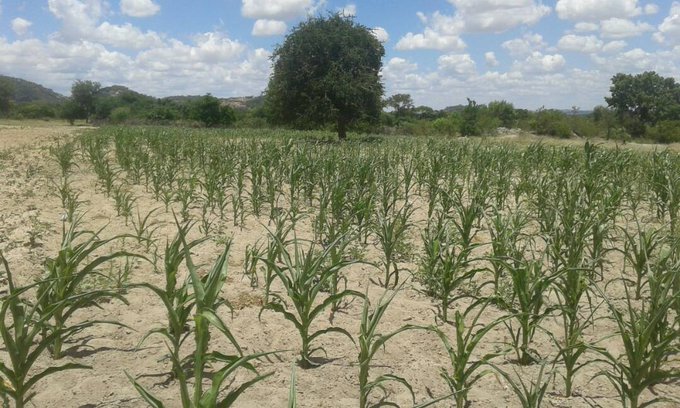While most farmers across the country have since lost hope in the current cropping season owing to erratic rains that have been received, the same cannot be said of farmers in Gwatemba, Filabusi, and surrounding areas.
As a drought mitigation measure, the government, which is already receiving financial support from international organisation, has said it would escalate maize imports.
Speaking to CITE over the telephone, from Filabusi, Matabeleland South, Friday, Jonathan Nsingo, a farmer in Gwatemba said not all hope had been lost for them.
“Our maize is looking good and very much green following the rains that we received on the 28th of December last year,” Nsingo told CITE.
“We just need one more good shower then our crop will be alright. Some farmers are still planting. I am also planting as I speak to you right now; we will stop mid-February.”
According to Nsingo, there is still hope for Gwatemba and the surrounding villages, with livestock condition also having significantly improved.
Nsingo said they would not easily give up on the cropping season despite the erratic rains that have been experienced since it began last October.
“Now with climate change issues, you never know when rains will come but not all hope has been lost.”
Meanwhile, Matabeleland North provincial agronomist Davison Masendeke, last week urged farmers in the province to conserve moisture in light of the erratic rains being experienced across the country.
The 2019/2020 cropping season has seen crops in most parts of the country suffer moisture stress owing to prolonged dry spells, something that has scuttled all hopes of a bumper harvest.
“Those areas that received rains must conserve moisture as much as they can,” said the agronomist.
“Farmers are urged to conserve moisture for the survival of their crops since there is no rain.”
He advised farmers to employ water conservation techniques, such as ridges, light cultivation and weed management to ensure the survival of both crops and livestock, adding they should also endeavour to control pests.
“If it happens that it rains, farmers are encouraged to plant short season crops,” said Masendeke.
“Farmers should do dry planting in anticipation of the rains so that they find seed already in the soil.”

